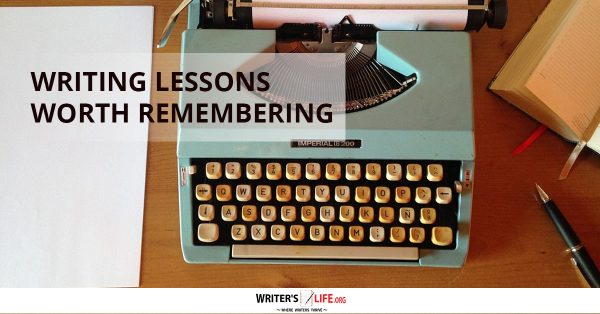- How To Tackle Jealousy In Creative Writing
- Common Submission Mistakes
- How To Stop Your Blog Becoming Boring
- The One Thing Every Successful Writer Has In Common
- How To Make Yourself Aware Of Publishing Scams
- Why Almost ALL Writers Make These Grammar Mistakes At Some Point
- 5 Tips For Authors On How To Deal With Rejection
- Top Mistakes to Avoid When Writing a Novel
- How to Avoid Common New Writer Mistakes
- 10 Mistakes New Fiction Writers Make
Writing Lessons Worth Remembering

When it comes to our writing, we all have different ways of working best. Because of this it 's hard to give writing advice that is going to suit everyone. There is no one size fits all’ approach to writing, and, for many writers, it is most helpful to try and experiment with different methods and approaches until they find the way that makes them their most effective, productive and brilliant.
However, to get there writers may need to try writing in different ways, at different times, in different places and so on, to discover how to be at their writing best. It’s also important to remember that there is always more to learn and new avenues to explore when it comes to our writing. Therefore, it is a good idea to keep testing and pushing yourself - that way you’ll never end up stagnant and will always be improving.
With that in mind, here are some tips that every writer should try.
Stop writing linearly
Try writing your next piece not in chronological order. You may find this incredibly refreshing and your ability to concentrate on each scene as a standalone piece will improve - which may make for a better story overall.
Work on different projects at the same time
It can be easy to get writing fatigue if we focus all our energy on just one project. OK, so your book might be your pride and joy and the thing you want to concentrate on the most - but have a couple of smaller, side projects on the go as well. This way you can take a break from your novel, and gain some distance from it, without stopping writing altogether - and then return to it with renewed energy and enthusiasm when you’re ready.
Switch between writing and editing
If you write your entire book without looking back, editing it will seem like a mammoth and somewhat overwhelming task. Try writing a chapter at a time and then editing it. It doesn’t have to be perfect, but at least when you reach the end of your novel, you will know you have already edited out the most common mistakes.
Always get feedback
Writers all need to get feedback on their work, and learn how to take it if it’s helpful, or reject it if it’s useless!
Read both good and bad literature
Understanding the differences between good and bad literature will help you ensure yours is the former! Therefore, don’t just restrict yourself to reading incredible books. Pick some you think might be terrible too - you can learn just as many lessons from these.
Write down your writing goals, and create deadlines
Having clear, visual writing goals and deadlines to achieve them will keep you moving forward and pushing yourself to achieve that next writing milestone.
Be organised
When it comes to time management, research, having a tidy workspace, being productive, and editing and marketing your book, the thing that will help you the most is being organised. An efficient organiser will have plans, timelines, deadlines and will always be one step ahead of themselves. Being organised will stop you panicking or becoming overwhelmed and will help you to approach each stage of your writing with a clear head and a sense of purpose.
Have patience, positivity and determination
Learning how to remain positive every day will stop you from wasting your time despairing or becoming overly critical. Having determination will keep you going even when you feel like giving up, and being patient will stop you from rushing and allow you to remain calm in those long waits when you have sent your book to publishers and editors and are hoping for a response.
These writing tips are certainly worth taking on board. Some are just good advice, and some are more practical and may not work for you. But good writing is all about testing and experimenting, so why not give them a go and see if they improve your writing and help you to become more effective?

Bethany Cadman -author of 'Doctor Vanilla's Sunflowers'


























